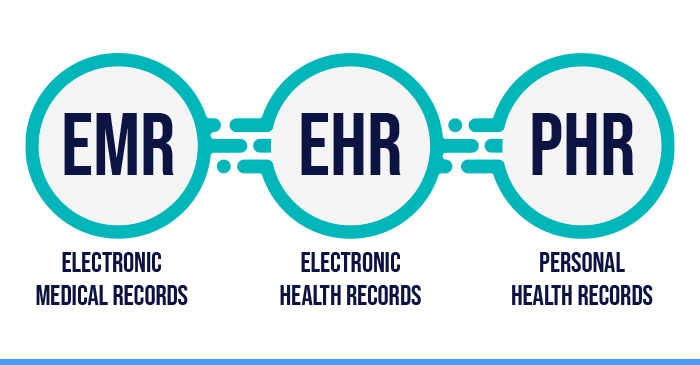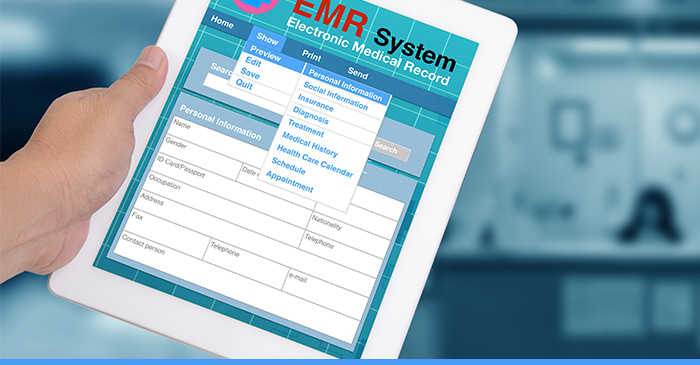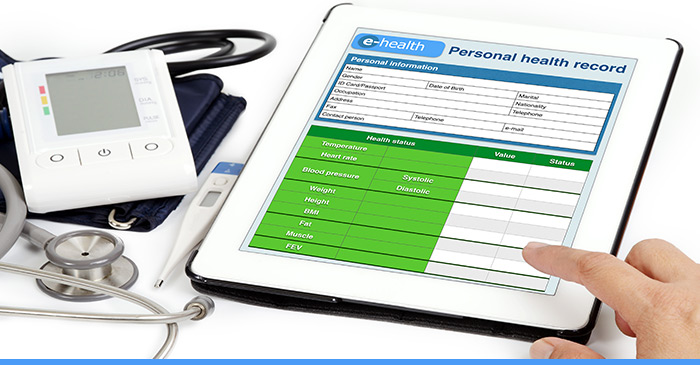
EMR vs. EHR vs. PHR are all terms used to describe the digital storage and management of medical information. It’s important to understand the differences between these three terms because each one serves a unique purpose and can offer different benefits for healthcare organizations and individuals.
Let’s get started by defining these terms and exploring their differences.
EMR vs. EHR vs. PHR: What’s the Difference?
When discussing EMR vs. EHR vs. PHR, EMRs are digital records of a patient’s medical history created and maintained by healthcare providers in a specific organization. EMRs are used primarily by healthcare providers within a single organization, such as a hospital or clinic.
On the other hand, Electronic Health Records (EHR) contain a patient’s medical information from multiple healthcare providers and organizations. EHRs are designed to be shared between different healthcare providers to ensure continuity of care and avoid duplication of tests or treatments.
Personal Health Records (PHR) are created and maintained by patients, usually through an online portal or app. PHRs allow patients to track their medical history, including medications, allergies, and medical conditions. PHRs can be shared with healthcare providers, but patients have more control over who has access to their information.
Electronic Medical Records: EMR vs. EHR vs. PHR

EMR systems come with various key features that make it easier for healthcare providers to access and manage patients’ medical information. These features may include electronic prescribing, clinical notes, and lab test results. EMRs can be customized to fit the specific needs of a healthcare organization, allowing for efficient and accurate patient information management.
One of the main advantages of EMR systems is their ability to streamline the documentation process and reduce errors. EMRs also allow for easier patient data tracking over time, making it easier for healthcare providers to monitor patient progress and make informed decisions.
However, EMR systems have some disadvantages as well. One significant disadvantage is that EMRs are not always interoperable, meaning that different systems may not be able to communicate with each other. This can lead to duplication of tests and procedures if a patient visits multiple healthcare organizations. EMRs may also be vulnerable to cyber threats, putting patient data at risk.
Compared to EHR vs. PHR systems, EMRs are more limited in scope as they are designed to be used within a single healthcare organization. However, EMRs can still be useful for healthcare providers who need to access and manage patient information within their organization.
Electronic Health Records: EMR vs. EHR vs. PHR
EHR systems have many key features that make them valuable tools for healthcare providers. These features may include medication lists, allergy lists, immunization records, and radiology reports. EHRs can also be customized to fit the specific needs of a healthcare organization, allowing for efficient and accurate patient information management.
One of the main advantages of EHR systems is their ability to improve patient safety and quality of care. EHRs can help reduce medical errors by providing healthcare providers with up-to-date and comprehensive patient information. EHRs can also facilitate care coordination among healthcare organizations, improving patient outcomes.
However, EHR systems have some disadvantages as well. One significant disadvantage is the potential for privacy breaches and cybersecurity threats. EHRs may also be difficult to use and require extensive training for healthcare providers.
Comparing EHR vs. EMR vs. PHR, the former system offer healthcare providers a broader scope and flexibility. EHRs can be used across healthcare organizations and facilitate provider communication and information sharing.
Read more: Epic App Orchard: Seamless Integration & Streamlined Workflow
Personal Health Records: EMR vs. EHR vs. PHR

PHR systems differ from EMR and EHR because they are patient-centered and managed by the patients rather than by healthcare providers. PHRs may include allergies, medications, medical history, test results, and diet and exercise information.
Key features of a PHR system may include the ability to track medications, monitor symptoms, set appointment reminders, and share information with healthcare providers. Some PHR systems may also offer features such as access to health education resources and tools for tracking fitness goals.
One of the main advantages of PHR systems is that they give patients greater control over their health information and allow for greater patient engagement in their healthcare. PHRs can also help improve communication between patients and healthcare providers and reduce the risk of medical errors.
However, PHR systems also have some disadvantages. One significant disadvantage is that patients may not have access to all their health information, particularly if they receive care from multiple healthcare organizations. Not all healthcare providers can access or use PHRs, limiting their usefulness.
Comparing EMR vs. EHR vs. PHR systems, PHRs offer a more personalized and patient-centered approach to managing health information. PHRs can help patients become more engaged in their healthcare and promote communication between them and healthcare providers.
Choosing the Right System for Your Healthcare Organization
Choosing the right electronic health record system for your healthcare organization is crucial. It is important to consider your organization’s needs and goals before selecting between EMR vs. EHR vs. PHR systems.
When evaluating these systems, it is important to consider cost, ease of use, interoperability, security, and regulatory compliance factors. EMR systems are typically best suited for smaller healthcare organizations with fewer resources and less complex information management needs. On the other hand, HER systems are better suited for larger organizations with more complex information management needs and the resources to support the implementation and maintenance of the system. PHR systems are best suited for patient engagement and empowerment and can be used with EMR or EHR systems to enhance patient care.
For example, a small primary care clinic may benefit from using an EMR system to manage patient records and appointments. This type of system can help streamline administrative tasks and improve the efficiency of care delivery. On the other hand, a large hospital may require an EHR system that can manage a greater volume of patient data and integrate it with other healthcare systems such as lab and radiology.
Sometimes, healthcare organizations may implement multiple systems to meet their specific needs. For example, a hospital may implement an EHR system to manage patient data within the hospital while providing patients with access to a PHR system to manage their health information.
Ultimately, choosing EMR vs. EHR vs. PHR systems depends on your healthcare organization’s specific needs and goals. It is important to carefully evaluate each system and consider how it will fit into your organization’s existing workflows and infrastructure. By choosing the right system, healthcare organizations can improve the quality and safety of patient care, increase efficiency, and better engage patients in their healthcare.
Conclusion
In conclusion, understanding the differences between EMR vs. EHR vs. PHR systems is critical for healthcare organizations to decide which system best suits their needs. Each system offers unique advantages and disadvantages, and it is important to carefully evaluate each before deciding.
By choosing the right system, healthcare organizations can improve the quality and safety of patient care, increase efficiency, and better engage patients in their healthcare. At Arturo Digital, a mobile app development company, we understand the importance of digital solutions for healthcare organizations. If you need a custom mobile app development solution for your healthcare organization, please contact us today to see how we can help.
Read more: Epic Integration with EHR Software: Benefits and Challenges